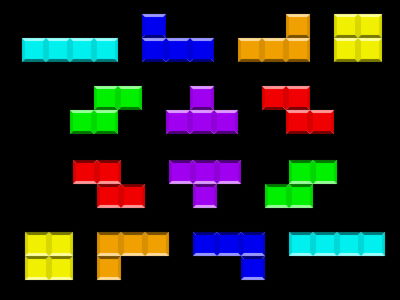The areas of the brain that are activated when reading the code of a program are not the same as language processing

The computer program
Comprehension of computer code relies primarily on domain-general executive brain regions | eLife
https://elifesciences.org/articles/58906
To the brain, reading computer code is not the same as reading language | MIT News | Massachusetts Institute of Technology
https://news.mit.edu/2020/brain-reading-computer-code-1215
As the word 'programming language' implies, code needs to be written correctly to give instructions to a computer, and it is also important that other programmers can read and understand it. Previous studies investigating learning Python, a programming language, reported that those who learned Python faster and more accurately tended to have better language and problem-solving skills .
A research team led by Associate Professor Evelina Fedorenko, a neuroscientist at the Massachusetts Institute of Technology , and Anna Ivanova, a graduate student, has conducted a new experiment to 'observe the brain of a person processing a programming language with fMRI.' It was.
Associate Professor Fedorenko is conducting research focusing on the relationship between language and other cognitive functions, especially examining whether functions other than language processing depend on the Broca's area and other linguistic areas. 'In this study, I was interested in investigating the relationship between language and computer programming. It turns out that computer programming is very new and there is no physical mechanism to become a good programmer. That's because, 'said Associate Professor Fedorenko.

In this study, the experiment was divided into two experiments. Python was used in the first experiment, and ScratchJr , a programming language for young children, was used in the second experiment. All of these are programming languages known for their readability.
More than 20 programming experienced people with knowledge of Python and ScratchJr participate in each of the two experiments, read the code of Python or ScratchJr while scanning the brain activity with fMRI, and think about how it behaves. I answered the question. We also investigated whether the subject's language area was in the right or left hemisphere of the brain, and analyzed which part was activated while reading the code.
As a result, the research team found that the language domain was largely unresponsive when the subject processed the code, and instead activated a network called the multiple demand network. The multiple demand network extends to the entire frontal and parietal lobes of the brain, and is responsible for performing tasks that require a lot of information at once and various mental tasks.
Previous studies have shown that math and logic problems activate multiple demand networks in the left hemisphere, but in this code-focused study, multiple demand in both the left and right hemispheres. It seems that the network has been activated. This suggests that the mechanism for processing code is not the same as for processing mathematical problems. 'Understanding computer code seems unique,' says Ivanova. 'It's not the same as language, not math or logic.'

Although no 'specialty area for processing programming languages' was found in this study, Associate Professor Fedorenko said in 'Programmers who spent 30 or 40 years coding in a particular language', part of the multiple demand network. Insisted that it could specialize in processing code.
A paper by Johns Hopkins University published on the same day as Ivanova et al.'S paper also shows that the areas activated by programming language processing and general language processing do not match.
Computer code comprehension shares neural resources with formal logical inference in the fronto-parietal network | eLife
https://elifesciences.org/articles/59340
Related Posts:
in Science, Posted by log1h_ik







